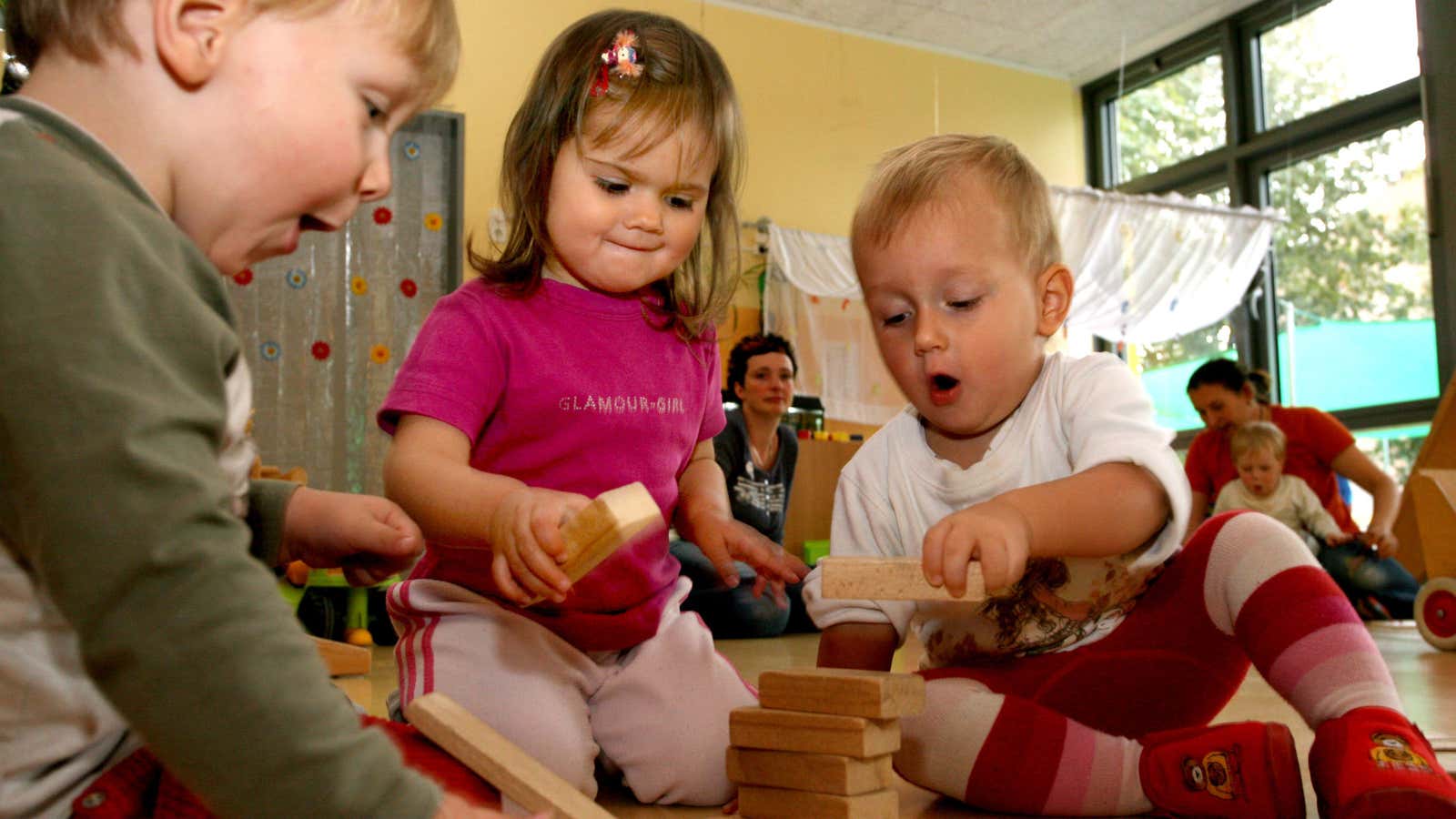New research from the University of Washington has confirmed what we’ve long suspected: toddlers are mini-geniuses.
In order to test toddlers’ aptitude for probability, researchers set up an experimental game. A researcher placed two differently colored and shaped blocks on a platform, activating a machine that dispensed marbles. One of the blocks activated the dispenser two thirds of the time, while the other activated it only a third of the time.
After watching the experimenter play the game a dozen times, the toddlers (as young as 2 years old) got their turn, and 72% of them—23 out of 32—chose the block with the greater probability of dispensing a marble.
Here’s a video of the experiment:
The researchers weren’t certain that the toddlers were picking the block based on probability, rather than frequency. In the initial experiment, each block was placed on the platform six times—one of them dispensing three marbles, the other dispensing two.
In order to discount that the toddlers were choosing based on frequency, the researchers ran the experiment again, this time dispensing the same number of marbles for each block (while maintaining the same probabilities, one-third and two-thirds). This time, 22 of the 32 toddlers still picked the more successful block.
While we’ve already known that children learn by watching others around them, the experiment shows just how well toddlers can catch on to mathematical principles.
